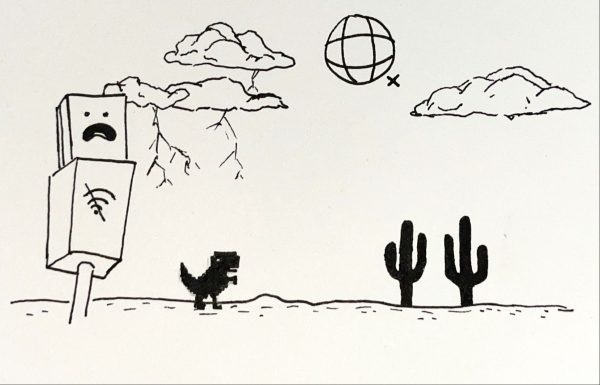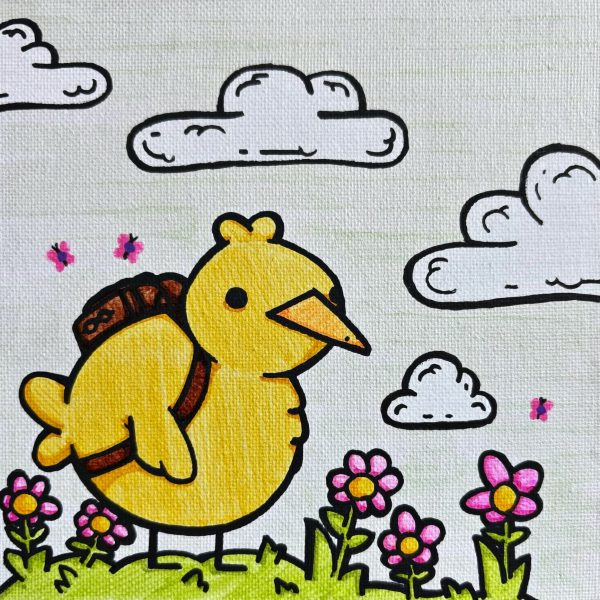Judging politics and satire (And so can you!)
October 29, 2007
Hardly anyone doubted in 2005 that a spin-off show featuring “The Daily Show’s” Stephen Colbert would be successful.
What came as a surprise after the fact is just how successful the show has become — and how much influence Mr. Colbert has now managed to parlay for himself in society.
Hardly a week goes by now when a stunt Mr. Colbert has pulled on his show or a word he has invented makes headlines for either its absurdity or for the stinging satire it demonstrates.
It’s the latter result that concerns me, though, and one I believe viewers of his television program should be made aware of.
For as much progress as Mr. Stewart’s ” The Daily Show” and Mr. Colbert’s “Colbert Report” have paved in the way of exciting younger citizens to become interested in news, I have a sinking feeling a majority of students — and those in the coveted 18- to 20-something advertising demographic — watch only these programs for their news intake.
This is an issue because the content these shows provide, while based on news, only provide admittedly biased highlights of events.
The shows serve their intended purpose: To satirize a particular news event, usually a policy of the president, but that is exactly what they are — satire.
Mr. Colbert announced Oct. 16 on his show he was running for president of the United States — as a Democrat and Republican, and only in his home state of South Carolina.
What’s important to take note of is the fact that Mr. Colbert bases his show around portraying a character — the former Second City student and Chicago native is a master of improvisation and he uses it well to his advantage.
The character is intended to represent Mr. Colbert’s feelings toward the right in this country, and Mr. Colbert very evidently enjoys taking his character to the far right.
Mr. Colbert appeared later in the week, on Oct. 21, on NBC’s “Meet the Press,” where he again, in character, laid out his platform for the presidency. Tim Russert seemed at times uncomfortable with Mr. Colbert’s fake persona, but played along well with it anyway.
After the show, Mr. Russert invited viewers to NBC’s Web site to see a short clip of Mr. Colbert out of character.
In this interview, Mr. Colbert’s gig was a little more genuine. I believe he wants to make real change in the country, but his stunt feels more like a marketing ploy for his already-successful show and recently released book.
It’s important that students understand the difference between the two characters Mr. Colbert portrays and that they keep this in mind when evaluating any statements he makes regarding the presidency.
But his character aside, in this particularly heated election season, the stunt is the last thing the country needs to focus on. The nation is facing serious problems — from the slowdown of the economy to the war in Iraq — and the issues need to be debated by serious candidates capable of enacting real change.
Citizens, then, must do their civic duty and make an informed vote to elect one of these candidates.
Mr. Colbert, in staging a mock run for the presidency, is undermining the political process the framers of the Constitution had in mind over 200 years ago: That a citizenry voting officials to public office is the best way to run a democracy.
What’s even more offensive is students who validate Mr. Colbert’s actions by creating things like Facebook groups calling for his election. Granted, it involves more people in the political process who desperately need to be involved, but I’m afraid students are making blind, uninformed decisions.
If they indeed support real change, time should be spent educating themselves on the stances of the real candidates — not that of a character on television.
There’s no doubt Mr. Colbert has become by now a household name in the world of television.
His influence, however, like all TV pundits, should be restricted to inventing words and ice cream flavors — not to deciding the election of the world’s most powerful office.












